Turn your passion into a profession with the World Nomads 2018 Film Scholarship - capture the stories of local communities and wildlife conservation in the Serengeti.
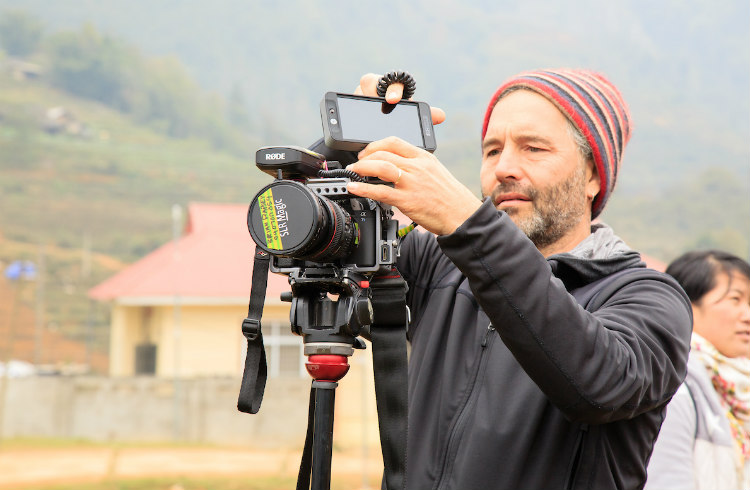 Photo © World Nomads
Photo © World Nomads
Listen Now
Episode 15: Film Travel Scholarship
Turn your passion into a profession with the World Nomads 2018 Film Travel Scholarship. One aspiring travel filmmaker will win an all-expenses-paid trip to Tanzania, to capture the stories of local communities and wildlife conservation in the Serengeti
What's in the Episode
00:15 - Welcome
00:54 - Who is on the show
01:25 – Previous winners
02:38 – Jigar Ganatra - 2017 Scholarship Winner
12:19 – Scholarship mentor Brain Rapsey
22:40 – 2018 Judge Jennifer Peedom
31:43 – How to apply
Who's on the Show?
Jigar Ganatra has traveled to five continents and speaks six languages and he has a passion for filmmaking which Jigar says derives from his curiosity to uncover world issues.
Brian Rapsey has worked for 20 years in TV, documentary, corporate, educational & film production. Take a look at his Rhapsody Pictures website to see his work.
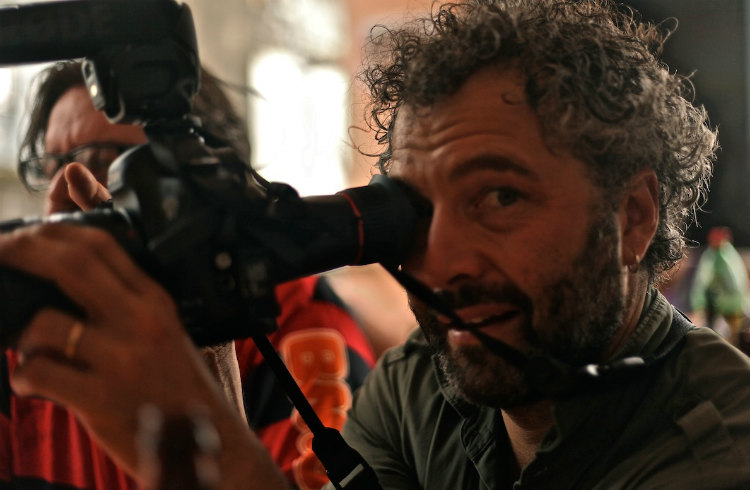
Jennifer Peedom is a documentary filmmaker who was nominated for a BAFTA for her film Sherpa, filmed during the 2014 avalanche in Nepal. Other movies include Miracle on Everest, Solo, and Mountain.
Resources & Links
Scholarships Newsletter: Sign up for scholarships news and see what opportunities are live here.
Follow World Nomads on Instagram for the latest stories, and #WorldNomads for your chance to be featured.
Want to Talk to us?
We want to hear from you! If you have any travel insurance questions to Ask Phil, want to give us feedback on the episode, or have suggestions for topics you'd like us to cover, email us at podcast@worldnomads.com
Embed the episode on your own page
If you'd like to share this episode on your own website simply embed this HTML code in your CMS: (<iframe width="100%" height="200" src="https://player.whooshkaa.com/player/episode/id/191777?sharing=true" frameborder="0" style="width: 100%; height: 200px"></iframe>)
Sign up for Podcast News
Explore your boundaries and discover your next adventure with The World Nomads Podcast. Hosted by Podcast Producer Kim Napier and World Nomads Phil Sylvester, each episode will take you around the world with insights into destinations from travelers and experts. They’ll share the latest in travel news, answer your travel questions and fill you in on what World Nomads is up to, including the latest scholarships and guides. The World Nomads Podcast is not your usual travel Podcast. It’s everything for the adventurous, independent traveler. Don’t miss out. Subscribe today.
Speaker 1: Welcome to the World Nomads podcast, delivered by World Nomads, the travel, lifestyle, and insurance brand. It's not your usual travel podcast. It's everything for the adventurous, independent traveler.
Kim Napier: Yeah, Hi and welcome to Episode 15.
Phil Sylvester: It's fantastic. I love it. 15 already.
Kim Napier: I know, it's nothing compared to say, 190. But we'll get there.
Phil Sylvester: The long journey begins with the first small step, Kim.
Kim Napier: Awe. Beautifully said. So this is a special edition [00:00:30] to our episodes. We're highlighting our film scholarship opportunities for 2018. So this is not so much a destination focused episode. But it's focusing on our scholarship.
Phil Sylvester: They're incredibly popular. The scholarships have been running for the past 12 years. For the travel film, the mentor we have been using is Brian Rapsey. He's been working this for six years now.
Kim Napier: He's worked for 20 years in TV, doco, corporate, educational film production. So well credentialed. He knows what he's talking about. And we'll [00:01:00] catch up with him in this episode to learn a little of how the scholarship works from his point of view.
Phil Sylvester: I know you're all very anxious to be able to get the best entry in that you can, so we're going to be speaking with one of the year's judges. The
Kim Napier: And you've got to get amongst her movies too ...
Phil Sylvester: Oh they're fantastic. Look, we get about 1000 applications every year. And past winners have included Eeshit Narai from India. His films, by the way, have since traveled to festivals all over the globe [00:01:30] and he's won lots and lots of accolades. Including the USA's Student Emmy's ...
Kim Napier: Oh wow. (clapping)
Phil Sylvester: ... and the Indian National Film Award. And look, he's now moved into Bollywood feature films. The latest one that he's worked on has got some really rave reviews for the cinematography, so go on you Eeshit ...
Kim Napier: Look, once you're into Bollywood films, they're prolific aren't they?
Phil Sylvester: They are. He's actually kind of Bollywood royalty we've found out after he won and we went on the trip with him. His father's
Kim Napier: Wow, so he was [00:02:00] destined.
Phil Sylvester: Yeah. Amazing.
Kim Napier: Well Maranatha Hay, have I said that correctly? Well, she's from Australia, she's a three-time Emmy-award-winning doco filmmaker. She's an editor and director. Known for "Stop Love" that was out in 2016. "Skeleton Woman" was last year. And "Baby Blue" in 2009.
Phil Sylvester: Andrés Brenner from Argentina. He currently produces vlogs and micro-documentaries for us here at the World Nomads video team. Andrés has traveled to five [00:02:30] continents shooting short travel documentaries about cultures. And then there's our most recent winner, Jigar Ganatra.
Kim Napier: Yeah he is a true global
Phil Sylvester:[crosstalk 00:02:46] Showoff.
Kim Napier: Yeah, I know, he is a show-off. But look he's amazing. He has a passion for filmmaking which you guess is derived from his curiosity to uncover world issues.
Jigar Ganatra: Yeah, exactly. So my background is in world issues and political [00:03:00] science. That's what I'm studying
Kim Napier: So how did you have time to fit in a travel film scholarship with all of your studies?
Jigar Ganatra: Well actually it came hand-in-hand. My [00:03:30] intellectual interest started when I was 16 years old. I was invited to the United Nations in Kenya to go and give a speech about deforestation. It was a youth conference and I did really well in that speech and everybody was really impressed with my delivery. So since then, I was like, you know, I can mix my communication skills with my political science skills.
And so I had a friend here ins school from Burundi. He was a refugee and he was studying with me. We became good pals here. I was [00:04:00] like, you know what, I want to become a filmmaker and I'm interested in what you're talking about, let's put this together. So it was just within a school setting. I didn't go out of my way to pursue film. So luckily I found the right people, the right place, and the right environment.
Kim Napier: This podcast is specifically about the film scholarship, so it's about inspiring people to enter. How did you come across the World Nomad's Travel Film Scholarship? What made you enter?
Jigar Ganatra: Well I spent quite a bit of time [00:04:30] on YouTube, on Instagram looking for inspiration from other creatives. Because obviously, I've not been to film school, my only way of getting exposed to
So I went to sleep and then the next day I got a message from one of my friends. And she sent me the link, and she's like "Dude you should totally apply for this!" And I'm like, "Yes I should." And that gave me motivation and so I did it.
Phil Sylvester: Well tell us about your entry. What was the movie that got you the scholarship, the film that you
Jigar Ganatra: The task for the scholarship was to make a three-minute film about an inspiring traveler and adventurer. So [00:05:30] I went through my head to see who do I know, who are people that travel, 'cause I travel quite a bit so I know some other people. So I was thinking of my competitors as well. It seemed like they would do the same kind of story. So I wanted to flip the whole thing around and take it from another perspective.
So not a typical traveler. A wealthy person coming from a higher class or powerful background, but rather other travelers who have gone through adversity, who have gone through some more [00:06:00] harder times, such as refugees.
My film was about Kiwi, his nickname is Kiwi, but his real name is Nestor. It's about him escaping Burundi after the war there, after the genocide. Sneaking into Tanzania without a passport, and sneaking into four other countries without a passport and learning six languages on the way. Sorry, seven languages on the way. Even with having no money, having no contacts knowing nobody, [00:06:30] how he made it through and all the way and now he studies here in Canada.
So it was a contrast from his story there and how he's integrating to life in a different world, in Toronto. And [inaudible 00:06:41] university.
Phil Sylvester: A magnificent film. It was really engaging. And Kiwi, he seems like a really nice guy as well, he's a good bloke.
Jigar Ganatra: He is so amazing. Actually, I'm supposed to meet him in a couple days. He works really hard. [00:07:00] So now he bought himself a car, just last week. And he's going to pick me up in a couple days and we're just gonna go out for some drinks and catch up. He's really modest and humble, and actually, the funny thing is he didn't even want this story to be published like in the first place. When I approached him I told him "I want to make a film about you, 'cause I find you really inspiring." And he was like "No" straight away because he was like "I've never shared this story
But I explained to him what this means to me, like if I win the scholarship what kind of impact it could have on my life as a filmmaker. So he came on board and he was really happy with the final film.
Phil Sylvester: Well tell us about your experience on the scholarship working with Brian.
Jigar Ganatra: So it was 14 days that I was in India and 12 days on the scholarship. And every single day was like a whole month or two at film school you can say an equivalent like. Those [00:08:00] twelve days I learned so much 'cause I never worked with anyone before. All I knew about filmmaking was
[00:08:30] But it was more a deeper level, and I learned so much just by being there in that setting. Being in that mindset. When I was in the World Nomad scholarship, it was like 12 days out of my normal routine just focusing on what I'm passionate about. So when you give something that you're passionate about that much-focused attention, I think that you can really get far. So that was what it was like for me, I really got far with Brian, with Emily, and everybody there, with the crew.
Phil Sylvester: That's the thing, you're talking about [00:09:00] being on a deeper level. I mean people think that making films is about the camera settings and what have you. But it's not. There's more to it than that. It's how you do the storytelling.
Jigar Ganatra: Precisely. Precisely. And that's what I learned. Not just on the 12-day scholarship but even after 'cause I've been in touch with Brian and the video filmmaking department at World Nomads. We've been exchanging feedback up and down. And refining the story.
So originally when we made the [inaudible 00:09:27] story which was the scholarship film, it was 16 minutes. [00:09:30] And for me that was as short as I could get. But then they told me "Okay, we need to refine the story, we need to work on it." It's exactly what you said it's more to it that the camera settings. That's just secondary. It's the less important thing. It's more about the people, the characters, the order of things and how information is conveyed for the viewer to feel like they're part of that place that we were at. To feel engaged.
Phil Sylvester: How do you feel now about your prospects for making this passion of yours into [00:10:00] your profession? Has it helped you along that?
Jigar Ganatra: Oh most definitely. It was like a blessing for me [inaudible 00:10:05] So let me tell you a little bit about the time that I found out that I won the scholarship.
Phil Sylvester: Yeah, go on.
Jigar Ganatra: At that [inaudible 00:10:11] the Amazon Rainforest in Peru. And it was my first documentary filming there. I just got all my camera gear [inaudible 00:10:18] after the summer, after cycling and being a bike courier I was able to afford all my gear, go to the Amazon Rainforest. And I was a total beginner. I was just there filming interviews and doing all that. And I learned a lot through that experience. And then I [00:10:30] got a call from World Nomads saying that I'd won.
I went to India after that and [inaudible 00:10:36] just from all that experience. Now editing my Amazon Rainforest film has been so much easier, so much quicker. And I've also been approached by my university to make films for them. For commercial shoots as well as other focused themed videos. Yeah, I feel really confident to be honest, Phil.
Kim Napier: And are you keen to maintain that initial [00:11:00] idea of giving a voice to minorities in your filmmaking?
Jigar Ganatra: That's like the centerpiece of my filmmaking. Because I find that everyone I'm looking at on social media and filmmaking people that I'm inspired by. It's very beautiful, they're doing great cinematography and great videos. But I feel that something that's lacking is a voice that is not mainstream. A voice that is foreign and that's what I'm trying to do. I'm trying to connect bridges and connect [00:11:30] hearts between places.
Kim Napier: What you would say to anyone listening that is thinking about applying for the film scholarship?
Jigar Ganatra: Just do it. I have to quote Nike, "Just do it." No matter if you think you don't enough gear, you don't have a right story, you don't have ... You'll get a lot of doubts and just like I did [inaudible 00:11:46] I got a lot of doubts while making this film. And it was difficult too, you know, to get the confidence and to get the courage to go and pick up the camera and start shooting. I had no idea what I was doing. But it's all about trial and error. Trial and improvement. If you don't [00:12:00] try you don't know what you can improve on.
Kim Napier: Best of luck with your future. I'm sure you're going to go very far.
Phil Sylvester: Your movies, your films you make are really inspiring Jigar. Congratulations.
Jigar Ganatra: Thank you. Thank you all Nomads.
Kim Napier: Congratulations Jigar.
Phil Sylvester: It was our scholarship mentor Brian Rapsey who took Jigar to India to film.
Brian Rapsey: That's right, yes we went to India. To the wonderful region of Kala. These scholarship films, this one was quite an ambitious [00:12:30] film for a scholarship winner to take on. I just do all the final touches like the color grading and the sound mixing. They're very sophisticated skills to have and it's a bit much to ask some people to put the final sweetening on it and that's what I'm doing. [crosstalk 00:12:49] Hopefully ...
Phil Sylvester: But the main edit, it's Jigar's edit, right? It's his version.
Brian Rapsey: Yeah, absolutely it's his edit. When I do a version of the grade or the sound mix, I send it to him and he sends me his [00:13:00] notes. So if he doesn't like what I've done or he wants some more sound effects in a particular place, I've got a good sound effects library. I've been putting in some atmosphere tracks of birds or crackling of a fire or something like that. It's just those final finishing touches that really give the film a bit of a sparkle. But yeah it's his film and I just mentor him.
Phil Sylvester: But do any of the people that you've mentored ever write back to you and say " [00:13:30] I don't like the
Kim Napier: I think you're going to say I love you.
Phil Sylvester: (laughter) I love you, Brian. Does anybody ever go, "You don't know what you're talking about?"
Brian Rapsey: No. (laughter) No, no, not yet.
Phil Sylvester: I didn't think they would.
Brian Rapsey: But I think by the time that we get to this stage we've had a really good open relationship in the sense of, we listen to each other. I think particularly [00:14:00] with Jigar he started off really early on with some edits that he thought were pretty good, and like two months later after the whole entire process that we've gone through, he's kind of sees that material in a completely different and new way. Also, I understand what he's trying to achieve through ... Because we have extensive dialogue. [00:14:30] He just runs ideas past me and I try them out. Sometimes I do a little bit of reediting on his film just to show him how certain things can be achieved.
Kim Napier: What happens once the film is delivered? Do you continue to mentor the travel scholarship winners? The film winners?
Brian Rapsey: Well interesting you ask that because I do. Sometimes they mentor me a little bit. There's a few of them. Particularly Andy Brenner the scholarship [00:15:00] winner who went to New Orleans with me. He's now making commission films often for World Nomads. He'll send me an edit and I'll give him some feedback. But no, more often than that I'm looking at his films thinking "Wow you're doing pretty good, I'm getting some ideas from you now."
Phil Sylvester: There are many different ways of making a travel film. But I take it with your background and the way that World Nomads operates as well, what we care about is story [00:15:30] telling. To you is that the heart of a great travel film?
Brian Rapsey: Well absolutely.
Kim Napier: And that's one of the things Jigar chatted about too, giving a voice to minorities within his storytelling.
Brian Rapsey: I don't tend to think about these people necessarily being minorities. But [00:16:30] we do go to out-of-the-way places. I think one of the features of the storytelling that we're trying to do is; on one hand, we might want to take an outsider's perspective to see the world through the traveler's perspective. But with the films that we've been doing on the scholarship, we've been trying to as much or more to represent the insider's perspective of the people who live there. And see the world outwardly through their eyes. [00:17:00] And so sometimes if we can, we can get a nice little balance between inside, outside, traveler, local perspective and really hopefully create a lot of interest of that. And a lot of understanding of the people in the place that we go to by counterpointing the two.
Phil Sylvester: Well that brings me to a point. I mean there are many different types of films. Some of the most popular travel films that we [00:17:30] will see around the place are very pretty and they use lots of filmmaking tricks and techniques. I'm thinking of the work of Sam Kolder, and I know you've seen his work as well. It's immensely popular and it's quite captivating to watch, but do you think that that is a travel film?
Brian Rapsey: For me, no. Look, I've only been [00:18:00] exposed to Sam Kolder recently and I've watched a couple of his films and the ones that I have seen I think of like they're creating a brand [crosstalk 00:18:14]
Phil Sylvester: He does a lot of native brand content, yeah.
Brian Rapsey: There are travel films in the sense that he's going places. But it's entirely from the few that I've seen, we're only seeing the [00:18:30] world or the travel world from, I call it, travel wallpaper. Shots of beautiful incredible places that you want to go. When I watch those films I've often looked at them thinking, "Wow they're great drone shots," or "look at the technique." And stuff like that
Often when we're making films for World Nomads we're trying not to draw attention to technique because [00:19:00] we want people to see through the frame and through the technique and feel like they're in a place or feel like they're genuinely engaging with the people in the story that is there. Rather than continually drawing attention to an amazing transition or really carefully composed drone shot that just speaks "Look at me and look at my technique."
Kim Napier: And that happens physically too with Sam 'cause he's into [00:19:30] skateboarding, cliff jumping, and the one that Fielder dislikes ...
Phil Sylvester: If I see another millennial doing a backflip off a cliff into the water I am going to throw up. (laughter) Seriously. Drives me up a wall.
Kim Napier: Backflips.
Brian Rapsey: Well that's said ... Jigar emailed me last week and he said, "well you're finishing off the grade on the film. Hey, I really like the color palette that Sam Kolder uses in his films" and he sent me links to them [00:20:00] so I can try to emulate the teal orange sort of cast that Sam has in his films.
Phil Sylvester: But what did you say to Jigar about that.
Brian Rapsey: I just said I'll have a go. But also to see if it's appropriate for the sort of story that we're doing. Because the story should speak to every quality of your film. In terms of the color grading and the sound design and stuff like that.
Phil Sylvester: People are right now contemplating entering the new Travel Film Scholarship, [00:20:30] so have you got some pearls of wisdom you'd like to give to people for the entries that they put in?
Brian Rapsey: I find this really hard.
Phil Sylvester: I've put you on the spot.
Brian Rapsey: Yeah yeah.
Phil Sylvester: Thing is though, people looking for some guidance, I think also coinciding with the release I hope so, said he crossing his fingers. Your little series on filmmaking that we've done for the create section, that's also being launched, right Brian?
Brian Rapsey: Yeah that's right. So we've made a series of five videos [00:21:00] of my practical advice for filmmaking. Covering a whole range of areas. This is why I find it hard to answer this particular question, "What advice you have" 'cause I've ...
Phil Sylvester: In ten seconds when you've got a five video series, yeah.
Brian Rapsey: The best advice I can give people is actually make sure that it's as long as it's supposed to be and that when they put that filmmaking challenge to you that you listen to that carefully. And that you make something [00:21:30] that speaks to that.
When we watch all the scholarship films
Kim Napier: Thank you so much for your support and for having a chat with us.
Brian Rapsey: This is my first podcast ever.
Phil Sylvester: We love it when we crack the [crosstalk 00:22:00] (laughter)
Kim Napier: I [00:22:00] was gonna say that. Brian
Phil Sylvester: Thanks
Brian Rapsey: It's been a pleasure. Great talking to you.
Kim Napier: Well Phil we've spoken to a previous winner. We've spoken to our mentor, Brian. Now for the 2018 Film Scholarship, we have to speak to one of the current judges. She's an award-winning director, writer, and co-producer. It's Jennifer Peedom, and you are a big fan of Jen's.
Phil Sylvester: I know. One of her films was on Australian TV just recently. I hadn't seen it before. [00:22:30] The film "Sherpa."
Kim Napier: You have also directed for the Discover Channel, "Everest, Beyond the Limit." We couldn't have picked a better judge, thank you.
Jennifer Peedom: Oh, it's a pleasure. I'm really excited to see the films.
Kim Napier: Now not only have you featured on Australian TV, but you've also featured on, and we've mentioned the Discovery Channel, National Geographic, ABC in Australia, SBS in Australia, the BBC, France 5, and is it ITVS?
Jennifer Peedom: Yeah, ITVS in [00:23:00] the United States. Yeah, that's my television work. But most of my work these days is in cinema. I have a film called "Mountain" that just finished in Australian cinemas, it's currently in the UK and the US about to launch in the US. So that's a feature documentary that explores the nature of our fascination with mountains.
Kim Napier: How hard is it being a filmmaker?
Jennifer Peedom: I remind myself on a daily basis how lucky I am, but it can be also like anything really. It can be deceivingly difficult. There's a lot a lot a lot of hard work to get those moments [00:23:30] of joy. And so you have to remind yourself occasionally to enjoy the process. But it's an amazing job and I feel very lucky to have stumbled into this line of work and hope I can stay in it for a very long time.
Phil Sylvester: Just tell us a little bit about "Sherpa," because you were there on Everest in 2014, for people who haven't seen the movie.
Jennifer Peedom: It's on SPS on Demand at the moment. I think it also on [00:24:00] iTunes. Given all of the years of working as a high altitude director and camera operator in the Himalayas when I was younger. I don't do that kind of thing anymore. I'd always been fascinated by the dynamics between the Sherpas who were a Buddhist local community whose name has become so famous that it's kind of been commandeered as a job description but in fact it's the name of a caste of ethnic Tibetans who migrated across [00:24:30] the mountains to Tibet.
Was always fascinated with the dynamics between them and foreign climbers that come to effectively conquer this mountain that is a very sacred mountain for them. That idea interested me from the start and I very early on in my carer I made a film for Dateline about the Sherpas. And then ten years later this was a sort of a follow up to that film on a grand scale. So it was a much bigger budget. It was a number of really world-class cinematographers. [00:25:00] The idea was, we would follow an Everest expedition from the Sherpa's point of view and see how that turned out.
But as it happened we were filming ... the year before there'd been a big fight on Everest between Sherpas and foreign climbers about disrespecting the mountain. I think there was a lot of ego and testosterone involved as well, but we knew that tension was really building and that the kind of [00:25:30] chasm between the haves and the have-nots was creating a lot of tension. So we went to really understand what was behind that.
It just so happened that we were filming when the worst disaster in the history of Everest happened. An avalanche came down the mountain and killed 16 Sherpas who were working to set up ropes and establish camps for the foreign climbers in what's called the Khumbu Icefall. And so it was a tragedy [00:26:00] on a massive scale and in all of that grief it threw up a lot of anger.
So it was very difficult to experience and very very sad experience. But it was also in some ways very profound as a filmmaker to be there at the particular point in history and witness those events when we were there to examine those tensions in the first place. That's what the film [00:26:30] is about I guess.
Phil Sylvester: But that must have been very personally challenging for you as well though.
Jennifer Peedom: Yeah tremendously personally challenging, yeah, you know. At the time that you're there you just have to kind of remember that it's not about you and you have to keep going. There are moments as a filmmaker where you don't keep going and there are other moments where you do and you have to sort of draw that ethical line yourself. In this particular intense there were moments where we didn't continue filming and then there are moments when we did. So it was just about [00:27:00] choosing the right moments.
I had an amazing Sherpa team, two cinematographers, as well as a Sherpa translator and a couple of assistants that were on our team; cinematographers and our whole film crew. So I was able to rely on them very closely to guide me in terms of what was right and not right in the particular instances. In the end, the Sherpa community knew exactly who we were and I'd worked with them a number ... some of them had known me ten years. We did really [00:27:30] get incredible access.
But you kind of hold it together around and then allow yourself to fall apart when you get home and everything's safe again. But you have an enormous responsibility to the crew and other people who are perhaps less experienced in those environments. And for some of them, it was very emotionally challenging as well as physically challenging. It was definitely right up there with one of the tough experiences in my life I have to say.
Phil Sylvester: I'll come back in [00:28:00] a minute. You mentioned you've known some of these Sherpas for ten years. I'd like to come back and talk about your experiences of going to the Himalayas so many time. But just something you said there as well. We've been having a discussion during this program about what a travel film is. Is it storytelling or is it beautiful pictures or is it ...
Kim Napier: Backflips (laughter)
Phil Sylvester: As I've been raving against backflips off cliffs into the water. Obviously, you're right [00:28:30] therein the heart of the storytelling camp.
Jennifer Peedom: I am yeah, and I think that's what I try to bring to my films is
Kim Napier: Okay, so that's a good segue into what you'll be looking for with the scholarship applicants. What else will you have an eye out for?
Jennifer Peedom: I think you really get a sense of a person when you watch a film. So I'll be looking for the point of view and character. Stakes, [00:29:30] what are the stakes. In the end, it comes down to whether a film moves me I guess. By that it can mean many things, did it move me in a sense ... was it entertaining, was it moving, did it make me cry? Was I transported to that world and a particular point of view? Did the filmmaker allow the true sense of the characters and their world come through [00:30:00] in the storytelling? Things like that.
Phil Sylvester: Can I just get back to what I was mentioning before? You say you've been going to the Himalayas and to Everest many many years now. What is it that draws you back there?
Jennifer Peedom: It's a good question. For me, I remember the first time I landed in what they call the Lukla Airstrip, which is the gateway to the Everest and the Himalayas in Nepal. I just had a very strong sensation that I belonged there. I felt really at home from the minute that I landed, and [00:30:30] that first time was probably back in 2003, and I can't count the number of times I've been back since. I'm no longer climbing and camera operating 'cause I have two young children but I went back with them last year and visited, in fact, the main character of "Sherpa." A wonderful friend of mine called Phurba Tashi Sherpa and I took my kids to his village to meet his family, he just had a new baby and just to spend some time in that part of the world with them not climbing and trekking [00:31:00] and just being there. That was probably my most magical holiday ever, just being in that place that I love so much with my family.
I think there's something about mountains that makes you feel humble and it makes you feel small and I quite like that feeling.
Kim Napier: Well Jen thanks so much for chatting
Jennifer Peedom: The kettle was being boiled so that ... [00:31:30] I apologize for that.
Phil Sylvester: No no no. That's alright [crosstalk 00:31:33]
Kim Napier: No no. It's live.
Phil Sylvester: Mountain climbers and trekkers love a good cup of tea.
Jennifer Peedom: We love a good cup of tea.
Kim Napier: Cheers Jen, thank you very much.
Jennifer Peedom: Okay, thanks for the chat.
Kim Napier: Okay, now to apply. Make a three-minute documentary. Our challenge to you is to go out and interview an amazing adventurer, or an inspiring traveler. And bring to life their compelling travel story around one of the following themes. And we've learned from Brian that you've got to stick to the time frame, and stick [00:32:00] to the themes. Courage, kindness, and acceptance.
Phil Sylvester: By the way, the winner will receive some awesome prizes too. From Langly, who design camera bags and accessories for traveling photographers and filmmakers. And Rhode, I love Rode ...
Kim Napier: Yes
Phil Sylvester: ... who specialize in the latest sound technologies. So they make awesome microphones. From big studio quality ones down to the ones that you can fit on your iPhone. They're fantastic. All
Kim Napier: Well Phil, I was gonna call you Philby then. [00:32:30] Has anyone called you Philby?
Phil Sylvester: Yeah, that's my nickname.
Kim Napier: Is it?
Phil Sylvester: Yeah it is.
Kim Napier: I've taped into it.
Phil Sylvester: I shared a house with a group of people when I was younger, and moved in, and "What's your name?" I said, "It's Phil." He's going "That's my brother's name. We got to call you something else, so you're Phil-B." So Philby.
Kim Napier: Philby. Alright well, Philby that wraps up our episode highlighting the World Nomad's Travel Film Scholarship. Please subscribe to the podcast, you can rate, share on iTunes. That's kind of important to us. Google Play, Stitcher, find us on Spotify and iHeartRadio. And contact us [00:33:00] by emailing podcast@worldnomads.com
Next, what's our featured destination?
Phil Sylvester: We're going to the Philippines.
Kim Napier: Excellent. Get filming guys, bye.
Phil Sylvester: Ciao.
Speaker 1: The World Nomads Podcast. Explore your boundaries.
Related articles
Simple and flexible travel insurance
You can buy at home or while traveling, and claim online from anywhere in the world. With 150+ adventure activities covered and 24/7 emergency assistance.
Get a quote




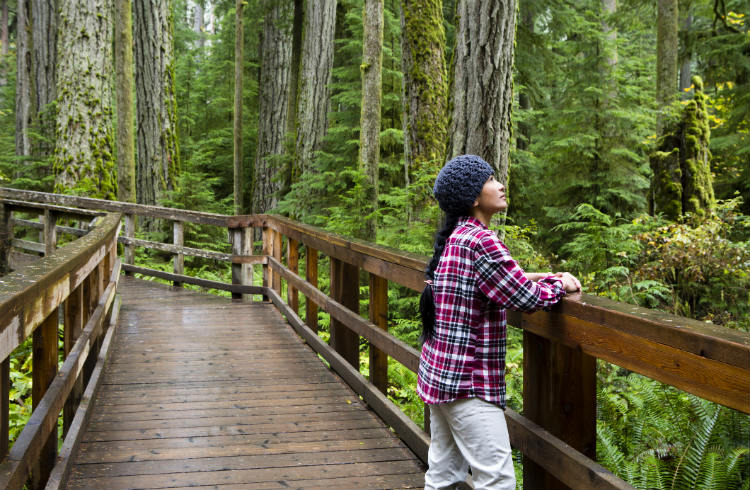
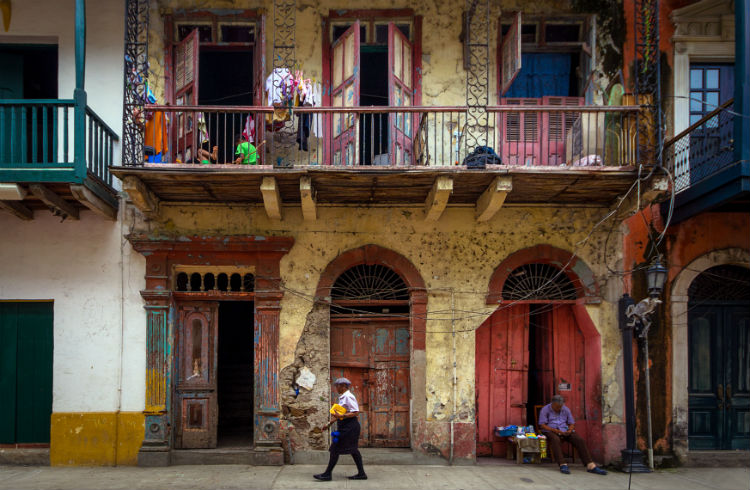
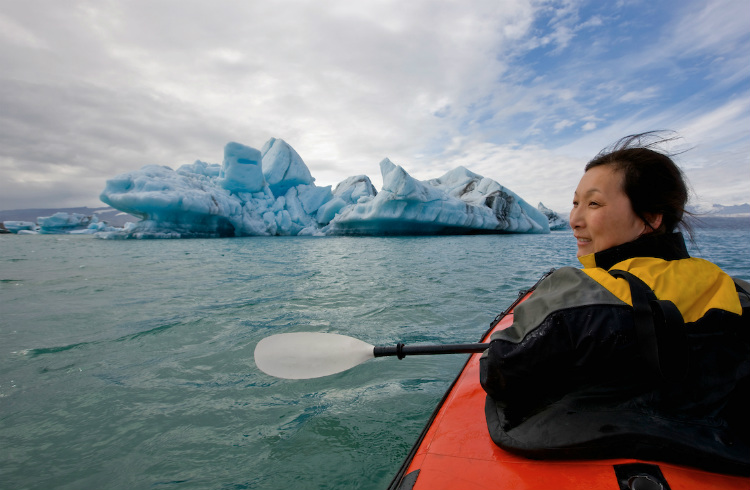
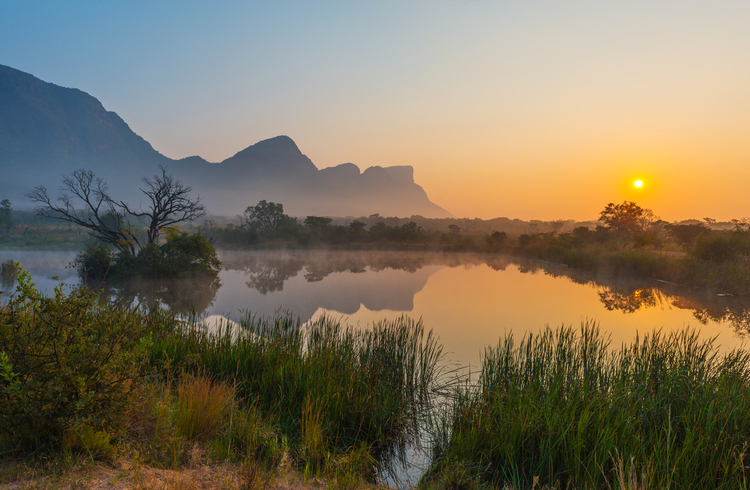

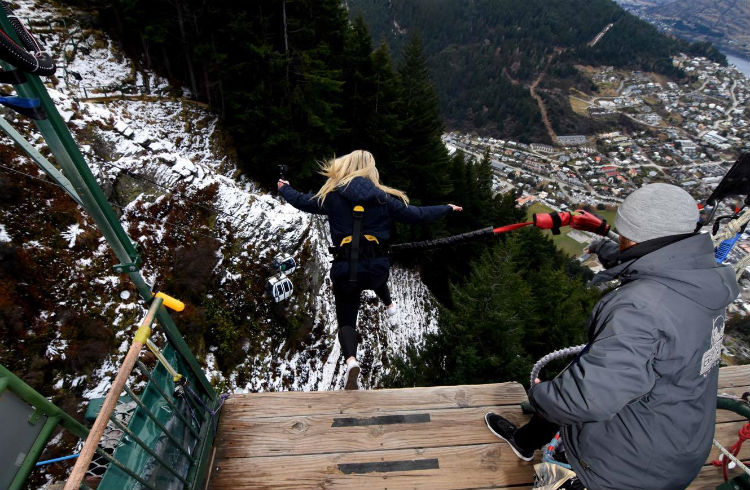
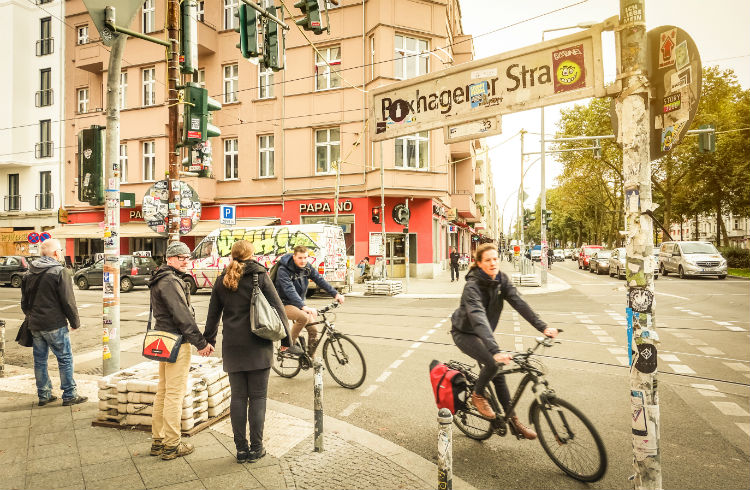
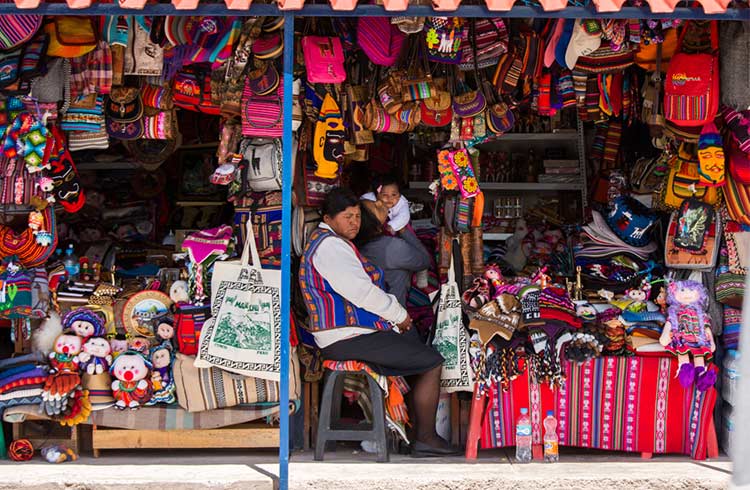
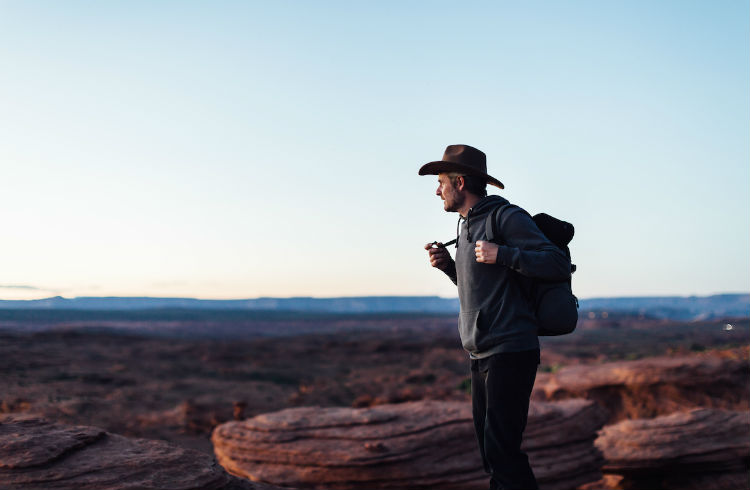
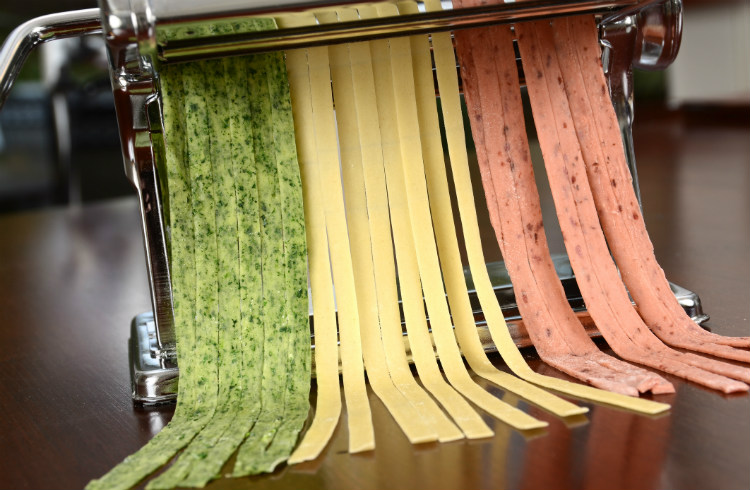
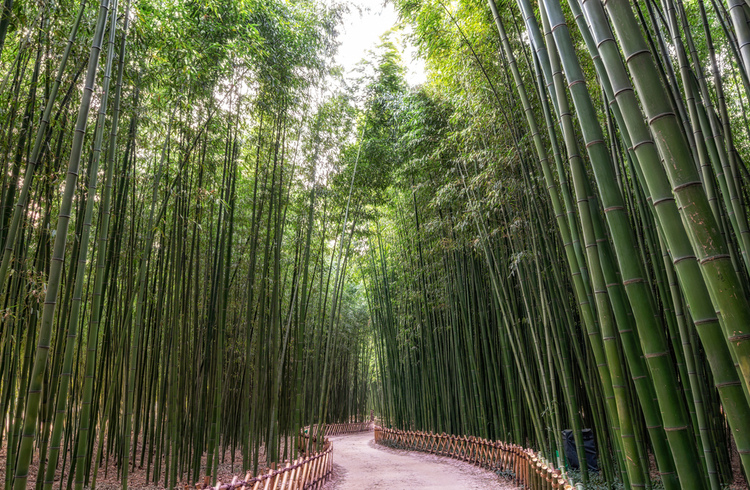
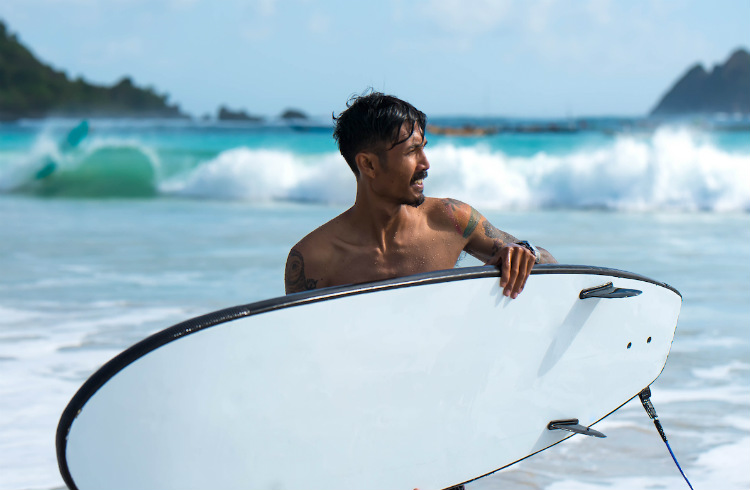
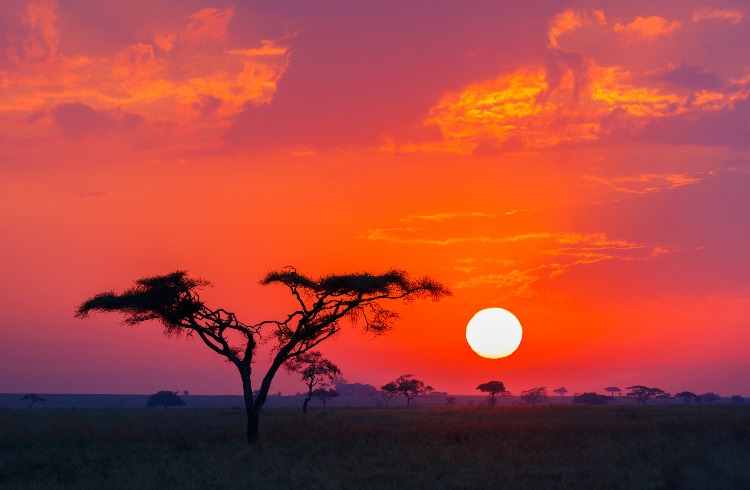
No Comments